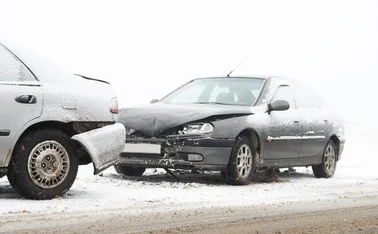
Analysis: Killer cars

Need to know
- Terrorists are increasingly using rented vehicles as weapons
- Removal of terrorism clause from MIB agreements makes insurers liable
- Industry searches for possible long-term solutions
How is the industry reacting to emerging terror trends?
In March, Khalid Masood hired a Hyundai Tucson from Enterprise Rent-a-Car and drove it into pedestrians on London Bridge, killing five and injuring around 50 others. Months later, terrorists used hire cars once again to kill pedestrians in the Borough Market and Finsbury Park mosque attacks.
The attacks have shown a worrying trend in which rented vehicles have emerged as the weapon of choice for terrorists. As a result, insurers are beginning to look at possible solutions to what may become a long-term problem. Post explores what the implications are for the industry.
Who pays?
In June, lawyers from Slater and Gordon made a claim against Zurich on behalf of Francisco Lopes, a 26-year-old Portuguese national who was injured during the Westminster Bridge attack.
Zurich insured the car provided by Enterprise Rent-a-Car which Masood used in the fatal attack. Last month, Post revealed that others injured in the incident had joined Lopes in making claims against the Swiss insurer.
Patrick Maguire, serious injury specialist lawyer at Slater and Gordon, who is representing the victims of the Westminster attack, said: “I am acting for a number of clients who have commenced claims against Zurich over the course of the last few weeks.
“The claims have been launched on the basis that Masood drove his motor vehicle in such a way that caused serious injury to the clients I act for. The claims are at an early stage, having only recently been intimated.”
Maguire declined to comment further on the identity of the clients or the damages being sought. A spokesman for Zurich said that after receiving a small number of claims following the attack, the insurer had instructed a specialist team to look at how any insurance policies may be impacted, but declined to comment further.
With the recent rise in terrorists using rented vehicles, and in light of the changes to the Ogden discount rate, motor insurers may be liable for massive compensation payouts. However, changes to the statutory framework around liability have made the issue more complex than it may first appear.
Talking point
Recent attacks using motor vehicles around the world.
14 July 2016
Nice
86 killed, 458 injured
19 December 2016
Berlin
12 killed, 56 injured
8 January 2017
Jerusalem
4 killed, 17 injured
22 March 2017
London (Westminster Bridge)
5 killed (including 1 fatally stabbed), 44 injured
7 April 2017
Stockholm
5 killed, 15 injured
3 June 2017
London (London Bridge and Borough Market)
8 killed (including some fatally stabbed), 48 injured
19 June 2017
London (Finsbury Park)
1 killed, 8 injured
On 1 March, the Motor Insurers’ Bureau removed a terrorism exclusion from both its Untraced Drivers Agreement and its Uninsured Drivers Agreement as a result of European Union Motor Insurance Directives.
Previously, if a terrorist used an uninsured car as a weapon, the Criminal Injuries Compensation Scheme would pick up any claims. As a result of the removal of the exclusion, the MIB would now handle the claim.
For claims arising from terrorist attacks in which a car is insured however, the picture is more complex. Ashton West, CEO of the MIB, said: “While policy wordings vary, many of them either exclude terrorism, or have wordings excluding deliberate acts.”
In the event of such an exclusion being in place, the vehicle would then be uninsured, and any claim would become a claim against the MIB.
West added: “However, under the terms of the articles of association of the MIB, there is an article called Article 75. That sets out rules which say while the claim may be excluded under the policy, you have to deal with the claim and pay the claim under the terms of the articles.
“Legally it’s excluded under the policy, but the rules of the MIB say you’ve got to deal with it. That’s been around for many years, to stop inappropriate behaviour from insurers.
“So although these claims may be excluded under policies for Zurich for example, they would go back to Zurich to handle. Effectively Zurich is acting on behalf of MIB in that context, but the rules say they have to both handle and pay the claim.”
Neil Clutterbuck, chief underwriting officer, Allianz Insurance, said: “Whether this clause was intended to pick up such an event will certainly cause much debate among the motor insurance community, as the market looks to explore a long-term sustainable solution.
“Such events challenge some of the fundamental principles of insurance, not least the fact that it is an intentional malicious act for which insurers have made no provision, rather than an unforeseen event.”
Emerging division
As a result of the lifting of the terrorism exclusion in MIB’s agreements, a division has emerged between who compensates those injured in terrorist atrocities dependent on the method employed.
If a member of the public was injured in an attack in a situation excluding a motor vehicle, the compensation is payable under the Criminal Injuries Compensation Scheme, and, therefore, funded by taxpayers.
Rental vehicles
- On 1 March, the Motor Insurer’s Bureau removed a terrorism exclusion from both its Untraced Drivers Agreement and its Uninsured Drivers Agreement as a result of European Union Motor Insurance Directives.
- Previously, if a terrorist used an uninsured car as a weapon, the Criminal Injuries Compensation Scheme would pick up any claims. As a result of the removal of the exclusion, the MIB would now handle the claim.
- The United Arab Emirates recently made telematics mandatory for rental vehicles.
If a vehicle is involved however, it is funded by the insurer, and payed for ultimately by insured motorists.
“What’s the difference?” West said. “Why should one be funded by taxpayers and why should one be funded by motor premiums? I don’t know the answer to that question, and I suspect nobody really does.
“That’s a question for government. The MIB has already started those discussions, but where they’ll go, we don’t know. At the minute these are the questions without answers.”
Until those questions are answered however, Clutterbuck says that insurers may move away from the rental market, as insurers cannot accurately underwrite the risk involved.
“As a result, gauging frequency, severity and risk profile is nigh on impossible, thereby drawing into question the ability of insurers to underwrite such risks,” he said.
“While no industry-wide solution is found, it may be the case that there is a reduction in capacity in some markets where trends have arisen, as insurers struggle to protect themselves from an underwriting perspective against these losses.”
West said the MIB is working with the Council of Bureaux to look at models used in other European jurisdictions in search of possible solutions.
“We’ve started this work, there’s a questionnaire going out and over the next few weeks we’ll develop a clearer picture of what Europe does in these circumstances,” he said. “This is just part of the work we need to do to get a better understanding of what the right solution is.”
While insurers and trade bodies continue to lobby the government on statutory changes, are there any practical lessons that can be learned from other jurisdictions?
Trak Global is one of the major suppliers of telematics to the rental car market. Group marketing and propositions director Andrew
Brown-Allan says that technology can play a part in reducing the threat posed to the public, and as a result to insurers.
“No rental companies would have seen this coming,” he said. “Clearly vehicles have been rented before for criminal purposes, such as ram raids and as getaway vehicles. Rental companies and crime are familiar bedfellows, but the terror phenomenon is a recent, tragic turn of events.
“People are now asking how the rental companies can insulate themselves, and technology is one of those ways.”
A spokesperson for Enterprise Rent-a-Car said: “In light of the recent attacks, we are co-operating with law enforcement agencies alongside our trade association, the British Vehicle Rental Leasing Association, and other car rental companies, to explore ways to increase security.
“Zurich is an important, long-standing and valued global partner for Enterprise.”
Brown-Allan explained that Trak Global’s products have recently been licensed in the United Arab Emirates as part of a government initiative to nullify the risk posed by terrorists using rental cars as weapons.
“It’s an interesting parallel in the UAE,” he said. “They were considering for some time introducing telematics into rental cars. The idea was to put telematics units into all hire cars, and that they were to report their location directly into Dubai security forces.
“They reasonably quickly turned that into law, and we were one of the few companies with a device licensed for distribution into the UAE. Clearly the legal system in Dubai is very different to here, there’s not as much concern around civil liberty and data protection. It would be a far slower and more complex process to implement such a system in the UK.”
The Metropolitan Police Commissioner recently suggested that rental companies should be regulated to prevent them being used in terrorist attacks, hinting at a review and potential legislative changes.
“The police are saying that ‘we need to work with rental companies to share data’, which is another issue entirely and has its own challenges,” said Brown-Allan. “Where there are known individuals who might be considering committing acts like this, if the rental companies are able to share the data on hirers, then there can be some sense of where an individual is.
“It’s far better though if a vehicle also has telematics, which can track the whereabouts of the individuals and the security services can keep an eye on it. But again, there are issues there around invasion of privacy and data protection.”
Black box limitations
Brown-Allan said that there are, however, limitations to black boxes: “Having a box in a car and having the ability to track and trace is fine if you know the hirer is up to no good. But if a vehicle is hijacked for example, how might that be reported and then tracked and traced?
“It’s not beyond the realms of possibility that you could use technology to remotely immobilise these vehicles and bring them to safe stop. That might at least limit the number of casualties, or prevent them altogether.”
Although recent changes to terrorism exclusions within the MIB’s agreements have caused debate among insurers, ultimately the changes that were made are fairer to the victims of terror.
Under the previous system, damages were paid on a tariff basis and were capped, meaning that compensation could fall short what could be recovered by common law. Insurers will no doubt continue to look at new systems and models however, in the event that the trend continues.
Only users who have a paid subscription or are part of a corporate subscription are able to print or copy content.
To access these options, along with all other subscription benefits, please contact info@postonline.co.uk or view our subscription options here: http://subscriptions.postonline.co.uk/subscribe
You are currently unable to print this content. Please contact info@postonline.co.uk to find out more.
You are currently unable to copy this content. Please contact info@postonline.co.uk to find out more.
Copyright Infopro Digital Limited. All rights reserved.
As outlined in our terms and conditions, https://www.infopro-digital.com/terms-and-conditions/subscriptions/ (point 2.4), printing is limited to a single copy.
If you would like to purchase additional rights please email info@postonline.co.uk
Copyright Infopro Digital Limited. All rights reserved.
You may share this content using our article tools. As outlined in our terms and conditions, https://www.infopro-digital.com/terms-and-conditions/subscriptions/ (clause 2.4), an Authorised User may only make one copy of the materials for their own personal use. You must also comply with the restrictions in clause 2.5.
If you would like to purchase additional rights please email info@postonline.co.uk








